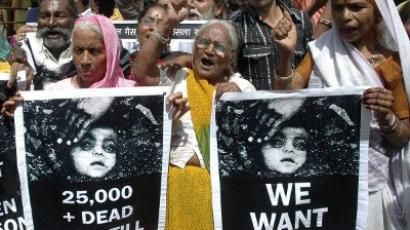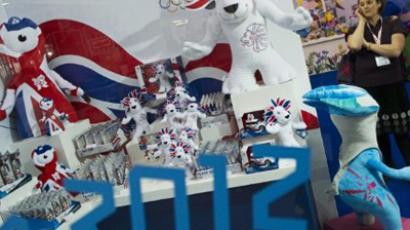Bhopal victims stage own ‘Olympics’ to protest Dow sponsorship (VIDEO)
Dozens of disabled kids affected by the 1984 Bhopal disaster, one of the world’s worst-ever industrial catastrophes, have held their own Games to protest against the London Olympics sponsorship by Dow Chemical.
The children, aged five to 16 and cheered by their nearest and dearest, have participated in 10 sports in Bhopal during the “Special Olympics". The move was aimed to attract attention to the responsibilities of the company, which has a contract with the IOC until 2020 and, in particular, is a sponsor of London Olympics.
Dow Chemical has repeatedly denied any involvement in the tragedy and refuses to add to the $470-million compensation paid out in 1989.
The Bhopal "Olympics" kicked off with children suffering from cerebral palsy, partial paralysis and mental disabilities parading in wheelchairs and walking with the assistance of others around an outdoor stadium in the shadow of the old pesticide plant.
One of the competitions was called "the crab walk": three children who were unable to stand propelled themselves down the 25-meter racecourse with their hands.
And one little boy was running back and forth on the field even when no race was on.
"The children are born like this because of the gas," Kesar Bai, a 45-year-old mother from a slum near the old pesticide plant, told AFP. She firmly believes that the disaster and its long-standing influence caused her son Pratap's severe cerebral palsy. "I was thinking 'If there hadn't been this tragedy, then so many would not be born like this'," she said, adding that in the area around her shack there were 10-12 ill kids.
Jamila Bi brought her wheelchair-bound 11-year-old grandson Amaan to take part.
"Today these children are participating, in spite of what Union Carbide did to them," Bi told AP. "We are happy that they will walk. Those people will see that in spite of what they did these children are still participating."
Some 25,000 residents of Bhopal died in the aftermath of a massive 1984 gas leak in a pesticide factory owned by the American company Union Carbide.
Immediately after tonnes of toxic gas leaked, survivors remember the slums surrounding the pesticide plant being packed with people, many unconscious, vomiting or frothing at the mouth.
"We woke up at 2am in the night. Everyone was running. If you fell down, they ran over you," Bai remembers.
In 2001, Union Carbide liable for the disaster was purchased by Dow Chemical.
The latter, however, has done little to improve the situation in the disaster-stricken zone.
According to activists’ estimates, 500,000 people are still suffering from illnesses developed after the tragedy, including cancer, blindness and various birth defects.
"We have been protesting against Dow's sponsorship [of the Olympic Games] for a year now; we want them to be dropped," organizers' spokeswoman Rachna Dhingra told Reuters. "But we have realized this is not going to happen."














